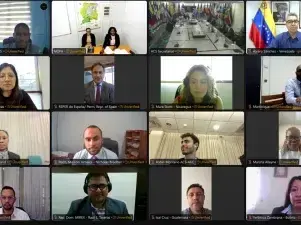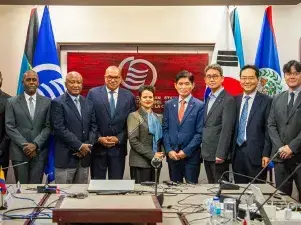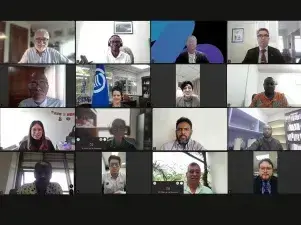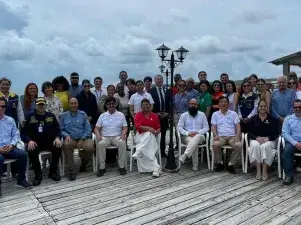ACS Establishes Sargassum Sub-Commission to Strengthen Ocean Governance in the Greater Caribbean
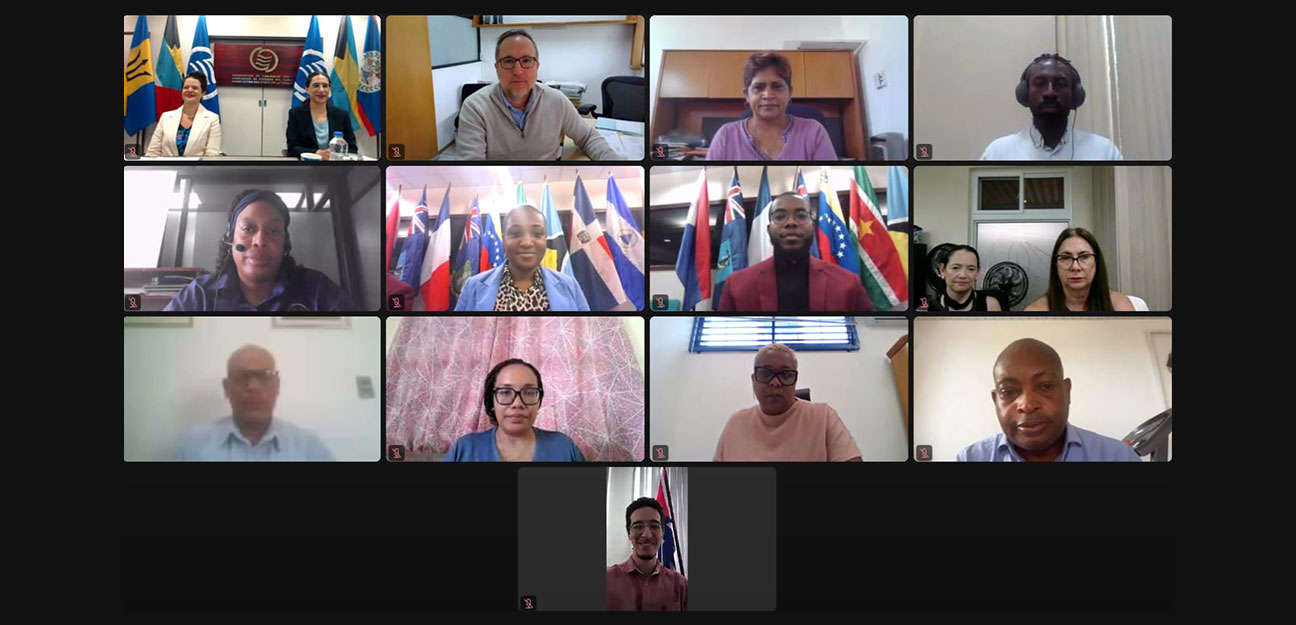
Port of Spain, Trinidad and Tobago – October 3, 2025.
The Association of Caribbean States (ACS) has taken a historic step with the establishment of the Sargassum Sub-Commission, a new technical and political body designed to coordinate regional action in response to one of the most pressing environmental challenges facing the Greater Caribbean.
This Sub-Commission, composed of fourteen (14) experts representing the region in an equitable manner, stands as the first intergovernmental mechanism with a regional political mandate to comprehensively address the impacts of sargassum on ecosystems, public health, the economy, and the livelihoods of coastal communities.
Through this initiative, the ACS consolidates its role as a regional platform for consultation and cooperation, endowed with political and technical legitimacy to articulate joint solutions to a phenomenon that transcends borders. Sargassum represents not only an environmental challenge, but also a socio-economic one, affecting key sectors such as tourism, fisheries, and food security.
The new Sub-Commission will work in close coordination with Member States, international organizations, and development partners to transform scientific knowledge and technological innovation into sustainable regional policies and projects. Its mandate seeks to ensure a coherent and coordinated response, leveraging the diversity of capacities and experiences present across the Greater Caribbean.
A Forward-Looking Intergovernmental Mandate
The establishment of this Sub-Commission responds to the commitment made by ACS Member States within the framework of the Caribbean Sea Commission—chaired by the Republic of Cuba—to strengthen institutional mechanisms for addressing ocean challenges in a structured manner.
This technical and political space will guide the formulation of the Regional Plan for Sargassum Management, an instrument that will define common lines of action in monitoring, prevention, mitigation, and sustainable use. It will contribute to the implementation of the 2030 Agenda, particularly Sustainable Development Goal 14 (Life Below Water).
Commitment to Inclusion and Cooperation
Aligned with the Association’s strategic vision, the Sub-Commission is distinguished by its diverse and inclusive composition, ensuring representation from across the Greater Caribbean and gender parity among its members. This approach ensures that regional responses reflect the plurality of realities and perspectives that characterize the region.
ACS Secretary-General H.E. Noemí Espinoza Madrid reaffirmed the institutional commitment to advancing regional cooperation through mechanisms that deliver tangible and sustainable results, emphasizing that the Sargassum Sub-Commission will be key in transforming an environmental challenge into an opportunity to strengthen resilience and ocean governance.
Towards a More Resilient Greater Caribbean
The launch of the Sargassum Sub-Commission marks a new chapter in the Association’s efforts to protect the Caribbean Sea as a regional common good and an essential pillar of sustainable development. Through this platform, the Association seeks to foster synergies among governments, academia, the private sector, and international organizations to promote innovative and equitable solutions for sargassum management.
With this action, the ACS reaffirms its leadership as a mechanism for cooperation and political dialogue, committed to the protection of the Caribbean Sea, regional integration, and the construction of a more sustainable future for its peoples.
About the Association of Caribbean States (ACS)
The Association of Caribbean States (ACS) is an intergovernmental organization established in 1994 through an international convention, with the objective of promoting consultation, cooperation, and concerted action among the countries of the Greater Caribbean. It is currently composed of 25 Member States and 10 Associate Members and is guided by the principles of multilateralism, respect for sovereignty, and unity that values the diversity of the Greater Caribbean region.
Related News
ACS Member States Approve Sustainable Tourism Work Programme—Accelerating 2026 Delivery Across the Greater Caribbean
Port of Spain, Trinidad and Tobago | 9 January 2026 — The Membership of the Association of Caribbean States (ACS) approved the Sustainable Tourism Work Programme for the period 2025–2026 at the
ACS and KIOST Host Inaugural Joint Workshop and Seminar, Celebrating the Establishment of the Joint Ocean Research Center
Port of Spain, Trinidad and Tobago – 6 November 2025
The Association of Caribbean States (ACS) and the Korea Institute of Ocean Science and Technology (KIOST) hosted their
Collaborative Webinar Explores SDG Data and Blue Economy Opportunities in the Caribbean
Port of Spain, Trinidad and Tobago — 31 October 2025
The Association of Caribbean States (ACS) co-organized the webinar “Advancing SDG Reporting for the Blue Economy in Latin America and




